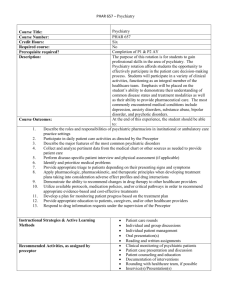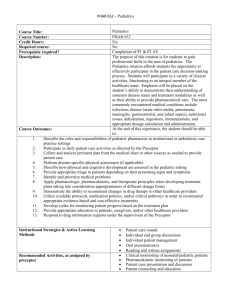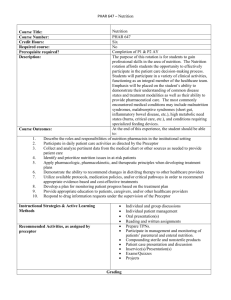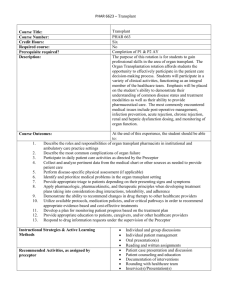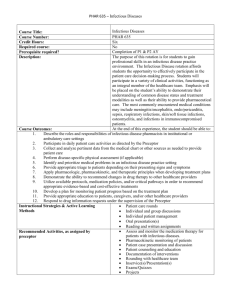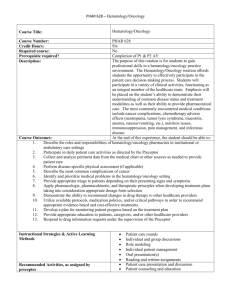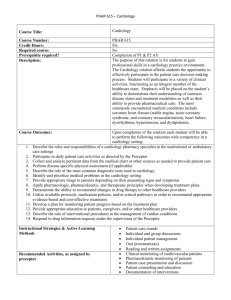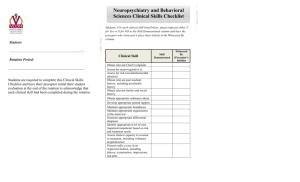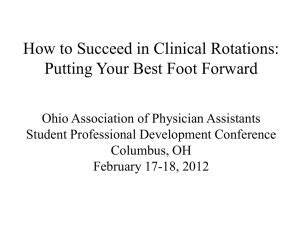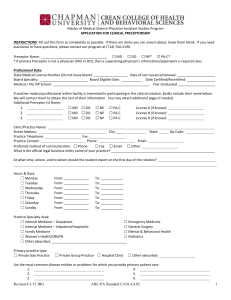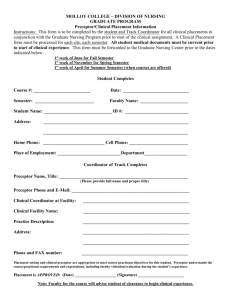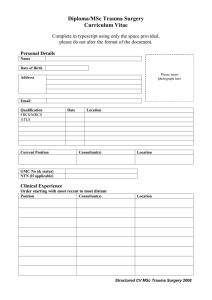PHAR 664 - Trauma
advertisement
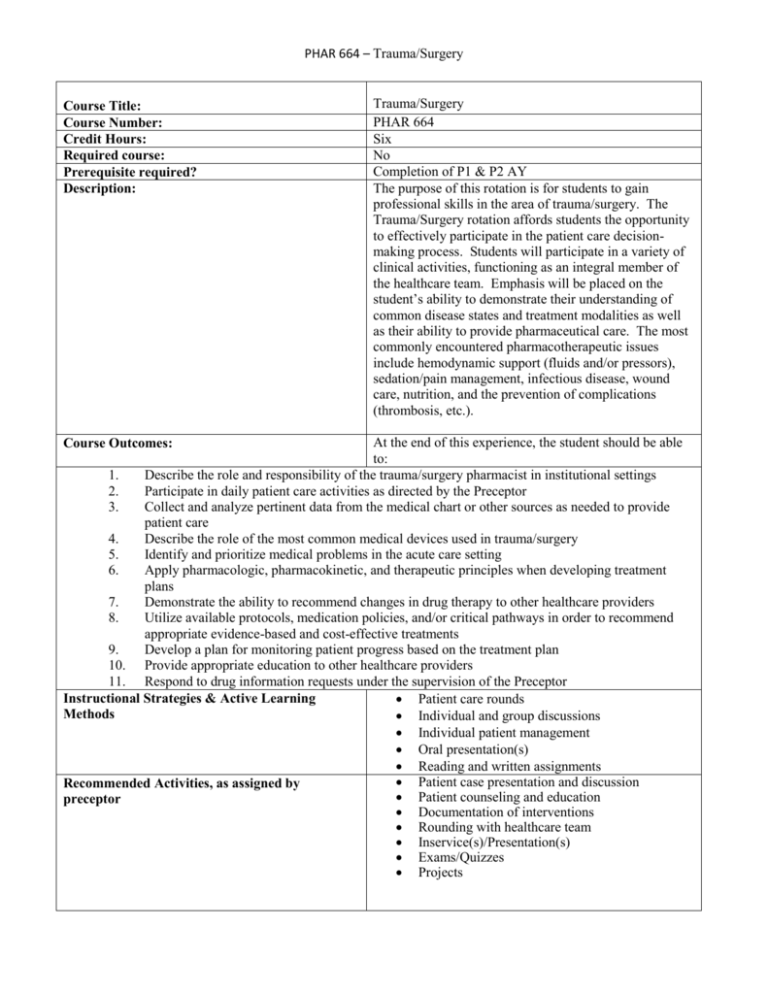
PHAR 664 – Trauma/Surgery Course Title: Course Number: Credit Hours: Required course: Prerequisite required? Description: Trauma/Surgery PHAR 664 Six No Completion of P1 & P2 AY The purpose of this rotation is for students to gain professional skills in the area of trauma/surgery. The Trauma/Surgery rotation affords students the opportunity to effectively participate in the patient care decisionmaking process. Students will participate in a variety of clinical activities, functioning as an integral member of the healthcare team. Emphasis will be placed on the student’s ability to demonstrate their understanding of common disease states and treatment modalities as well as their ability to provide pharmaceutical care. The most commonly encountered pharmacotherapeutic issues include hemodynamic support (fluids and/or pressors), sedation/pain management, infectious disease, wound care, nutrition, and the prevention of complications (thrombosis, etc.). At the end of this experience, the student should be able to: 1. Describe the role and responsibility of the trauma/surgery pharmacist in institutional settings 2. Participate in daily patient care activities as directed by the Preceptor 3. Collect and analyze pertinent data from the medical chart or other sources as needed to provide patient care 4. Describe the role of the most common medical devices used in trauma/surgery 5. Identify and prioritize medical problems in the acute care setting 6. Apply pharmacologic, pharmacokinetic, and therapeutic principles when developing treatment plans 7. Demonstrate the ability to recommend changes in drug therapy to other healthcare providers 8. Utilize available protocols, medication policies, and/or critical pathways in order to recommend appropriate evidence-based and cost-effective treatments 9. Develop a plan for monitoring patient progress based on the treatment plan 10. Provide appropriate education to other healthcare providers 11. Respond to drug information requests under the supervision of the Preceptor Instructional Strategies & Active Learning Patient care rounds Methods Individual and group discussions Individual patient management Oral presentation(s) Reading and written assignments Patient case presentation and discussion Recommended Activities, as assigned by Patient counseling and education preceptor Documentation of interventions Rounding with healthcare team Inservice(s)/Presentation(s) Exams/Quizzes Projects Course Outcomes: PHAR 664 – Trauma/Surgery Grading Students are to be formally assessed twice during the rotation, at the midpoint and end of the rotation. The midpoint and final assessment shall include active discussion between the Preceptor and student. Concurrent review of the student self-assessment and Preceptor assessment is encouraged. The following definitions may be used as a guide to assist with the assessment process. Not Yet Addressed This outcome has not yet been addressed. Midpoint Assessment Needs Improvement Student’s progress towards achieving this outcome is unacceptable; student still needs continued development in this area. Satisfactory progress Student’s progress towards achieving this outcome is acceptable. The purpose of the midpoint assessment is to assess student progression and/or identify deficiencies. Deficiencies identified during the midpoint assessment should become an area of focus for the remainder of the rotation so the student can successfully achieve the outcome before the final assessment. Preceptors must contact the Experiential Coordinator if a student is performing unsatisfactorily (e.g. multiple “Needs Improvement”) upon completion of the midpoint assessment. Achieved The student is able to complete the assigned outcome. Final Assessment Satisfactory Student’s progress towards achieving this outcome is acceptable however student still needs continued development in this area. Not Achieved Student is unable to complete the assigned outcome. A “No Pass” must be assigned for the rotation if a single “Not Achieved” is given on the Final Assessment. Preceptors are required to provide documentation for each “Not Achieved”. Thorough documentation of student progress is recommended. Lastly, all assessment forms must be received by the College no later than seven (7) days after the completion of the rotation. Instructor(s): Texts: Special Projects/Assignments APPE Coordinator and Assigned APPE Preceptor None unless otherwise specified by individual preceptor As assigned by APPE Coordinator or APPE Preceptor
